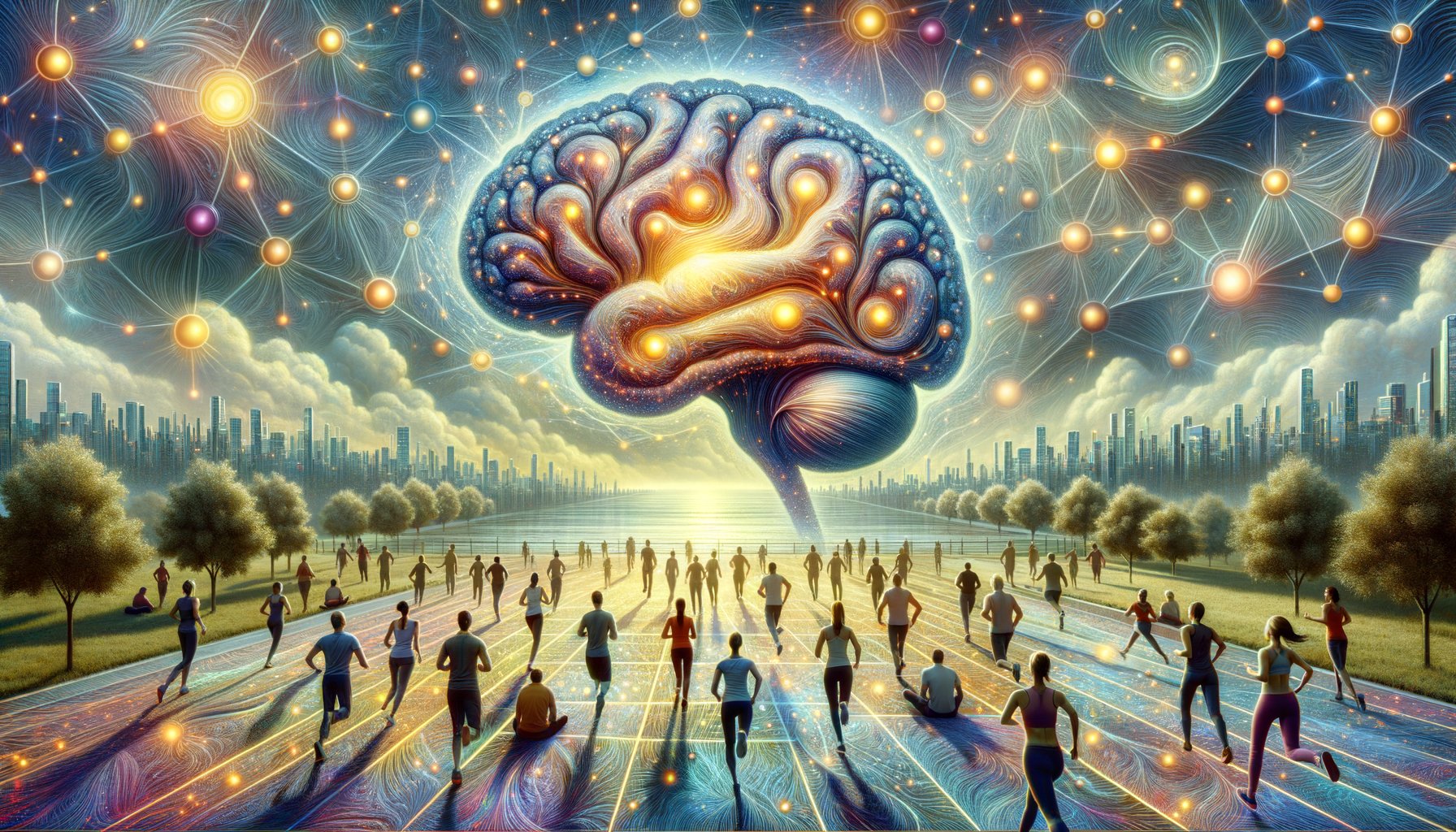Physical Address
304 North Cardinal St.
Dorchester Center, MA 02124
Physical Address
304 North Cardinal St.
Dorchester Center, MA 02124

Imagine you’re running a marathon. Your muscles are working hard, your heart is pumping, and sweat is trickling down your face. But amidst the physical exertion, something remarkable happens. Your mind becomes crystal clear, focused on the task at hand with laser-like precision. Welcome to the fascinating world of the mind-body connection, where physical exercise and mental clarity intertwine in an intricate dance.
This relationship between physical activity and cognitive prowess isn’t just anecdotal; it’s backed by a wealth of scientific research. Studies have shown that regular exercise can improve memory function, enhance mood, reduce stress levels, and even ward off mental health conditions such as depression and anxiety.
So how does this work? Let’s dive into the mechanics of this captivating correlation.
When we engage in physical activity, our body responds by increasing blood flow to all parts of our body – including our brain. This increased circulation brings more oxygen and nutrients to our brain cells that helps them function more effectively.
Furthermore, exercise triggers the release of various hormones and chemicals within our bodies that contribute to improved cognitive function. One such chemical is brain-derived neurotrophic factor (BDNF), which acts like fertiliser for our brain cells – promoting their growth, survival and plasticity.
If you’ve ever felt like your memory could use a boost (and who hasn’t?), lacing up those trainers might be one of the best things you can do. Research has shown that regular aerobic exercise can increase hippocampus size – that’s right, part of your brain actually gets bigger! The hippocampus plays a vital role in learning and memory processes; hence this growth can lead to enhanced memory performance.
Physical exercise is not just about toning muscles or shedding kilos; it’s also a powerful tool for mental wellbeing. When we exercise, our body releases endorphins – often referred to as ‘feel-good’ hormones. These chemicals act as natural mood lifters, reducing stress and promoting feelings of happiness.
Moreover, regular physical activity has been linked to reduced symptoms in people suffering from depression and anxiety. It seems that the simple act of moving our bodies can have profound effects on our emotional landscape.
If you’ve ever experienced the phenomenon known as ‘runner’s high’, you’ll know that aerobic exercise can bring about an almost meditative state of clarity and focus. This isn’t just a figment of your imagination; it’s a physiological response. As we push our bodies, we trigger a cascade of reactions that result in increased concentration and heightened awareness.
This clarity isn’t confined to the period during exercise either; it extends beyond, helping us navigate through our daily tasks with more efficiency and less mental fog.
So how much exercise do we need to reap these cognitive benefits? The good news is you don’t need to be an elite athlete or spend hours at the gym every day. Even moderate-intensity activities like brisk walking or cycling can make a significant difference.
The key is consistency. Aim for at least 150 minutes of moderate-intensity exercise per week – that’s about 30 minutes a day, five days a week. Remember, it’s not about punishing your body but nurturing it. Find activities you enjoy so that staying active becomes not just a chore but a pleasure.
The connection between physical exercise and mental clarity is a fascinating field of study that continues to reveal new insights. As we unravel the complexities of this relationship, one thing is clear: our bodies and minds are not separate entities but interconnected aspects of our overall wellbeing.
So next time you’re feeling mentally foggy or emotionally down, remember the power that lies in movement. Lace up those trainers, hit the pavement, and let your mind bask in the clarity that comes with physical exertion. Your body will thank you – and so will your brain.